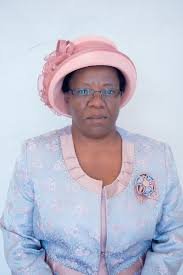By Brighton Chiseva
Zaka Rural District Council (RDC) Chairperson, Fungai Maregedze, has been acquitted of five counts of criminal abuse of duty after the state failed to establish a prima facie case against her. Masvingo Magistrate Elizabeth Hanzie handed down the verdict yesterday (January 7).
Maregedze was arrested by the Zimbabwe Anti-Corruption Commission (ZACC) on Wednesday, October 2, 2024, and spent a single night in police cells before being granted bail. Her case had been dragging on since then.
In the ruling, the magistrate noted that Maregedze had acted within the confines of council resolutions and had not abused her office or acted contrary to her duties. There was no evidence to suggest that Maregedze had personally benefited from the alleged offenses.
The allegations were that Maregedze convened several unsanctioned meetings between February and April 2024. These meetings were attended by councilors only, without council management. They were also alleged to have had no agenda and were not on council schedules.
Maregedze was accused of authorizing the payment of sitting allowances for these meetings, amounting to over US$6,000, all outside the council’s budget and resolutions. It was also alleged that no harm or prejudice was suffered.
Specifically, it was alleged that on February 10, 2024, the suspect called for a weekend meeting that was not part of the council’s annual schedule, resulting in US$692 being paid to councilors, including herself, for attendance.
It was further alleged that on February 17, she demanded US$926 in allowances, in violation of council procedures. In April, she allegedly forced the finance director to approve payment of US$4,749 for another unsanctioned meeting.
However, the court established that she never abused her office or acted contrary to her duties, and that she acted within council guidelines.
The court further noted that the fuel request reduction from 2,000 liters to 1,000 liters, which was one of the charges against Maregedze, was in line with a council resolution. Additionally, the court found that all payments for councilors’ allowances were initiated and made by council management, and not by Maregedze personally.
It also came out that, according to the evidence submitted, no law was contravened. Therefore, she could not be held personally accountable where collective decisions were made by the full council.
The court said there was poor communication between councilors and management and that there was a need for the Council to improve its financial management.







